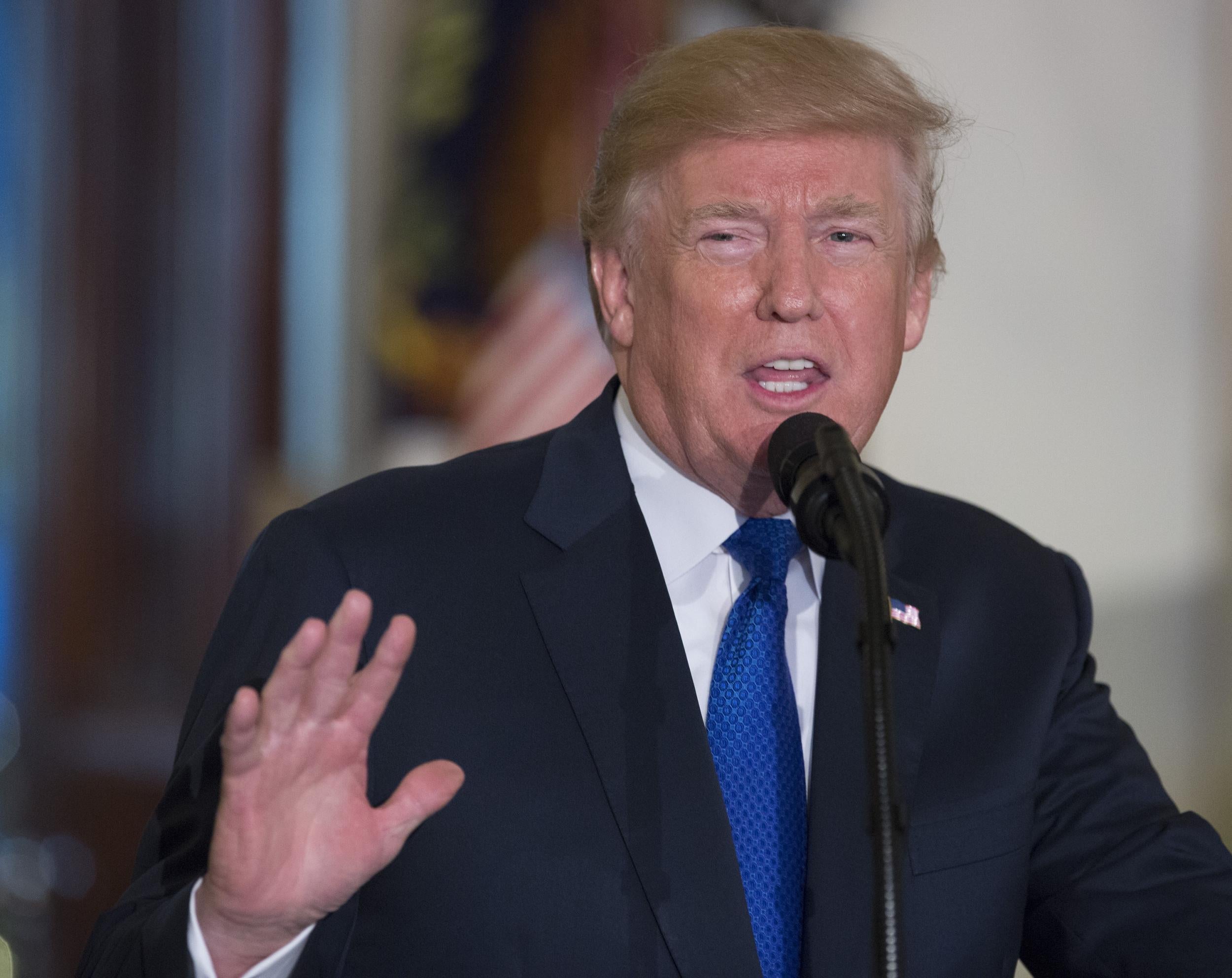Trump's aides leave Russia out of intelligence briefings over fears it will upset him
One official says any mention of Russian meddling takes the President's briefing 'off the rails'

Your support helps us to tell the story
From reproductive rights to climate change to Big Tech, The Independent is on the ground when the story is developing. Whether it's investigating the financials of Elon Musk's pro-Trump PAC or producing our latest documentary, 'The A Word', which shines a light on the American women fighting for reproductive rights, we know how important it is to parse out the facts from the messaging.
At such a critical moment in US history, we need reporters on the ground. Your donation allows us to keep sending journalists to speak to both sides of the story.
The Independent is trusted by Americans across the entire political spectrum. And unlike many other quality news outlets, we choose not to lock Americans out of our reporting and analysis with paywalls. We believe quality journalism should be available to everyone, paid for by those who can afford it.
Your support makes all the difference.White House officials have claimed they purposefully leave information on Russian interference out of Donald Trump’s daily briefings for fear it will upset him.
Current and former administration officials told the Washington Post they frequently plan the President’s daily brief (PDB,) around his suspected emotional reactions. Information about Russia, and its alleged attempts to influence the American political system, is among the most likely to set him off.
“If you talk about Russia, meddling, interference – that takes the PDB off the rails,” a former senior US intelligence official told the Post.
For that reason, officials occasionally avoid putting new information about Russia in the oral briefing, leaving it to the written briefing notes instead. At other times, officials said, they place information at strategic times throughout the briefing to keep the President from flying off the handle.
Even the National Security Council does not raise the issue of Russian interference outside of its own, lower levels, for fear of angering the President, a former high-ranking Trump administration official said.
Brian Hale, a spokesman for the Office of the Director of National Intelligence, did not directly dispute these accounts, but told the Post that the intelligence community “always provides objective intelligence – including on Russia – to the president and his staff".
The CIA, NSA, and FBI have all concluded with “high confidence” that Russia attempted to influence the 2016 election on the orders of President Vladimir Putin. The directors of all three intelligence agencies told Mr Trump earlier this year that they had captured Mr Putin’s explicit instructions on the project, according to the Post.
Still, the President has repeatedly downplayed the agencies’ findings and suggested that other countries could be responsible for the interference, too.
“I think it could very well have been Russia but I think it could very well have been other countries, and I won’t be specific,” Mr Trump told reporters over the summer. “But I think a lot of people interfere. I think it has been happening for a long time.”
Among the more than 50 current and former US officials interviewed by the Post, explanations for the President’s hesitance to accept this information differed. Some said Mr Trump fears that acknowledging Russian meddling would give credibility to allegations that his campaign colluded with Moscow.
Others, however, said insinuations that Russia – and not Mr Trump alone – had bolstered his election victory were simply a threat to the President’s ego.
“If you say ‘Russian interference,’ to him it’s all about him,” a senior Republican strategist said. “He judges everything as about him.”
Join our commenting forum
Join thought-provoking conversations, follow other Independent readers and see their replies
Comments